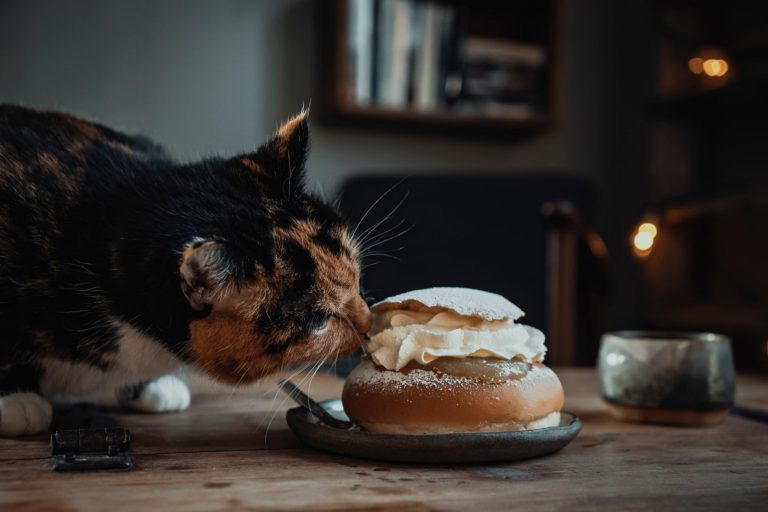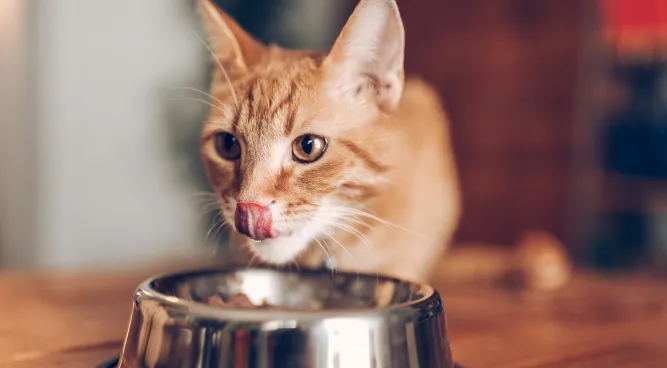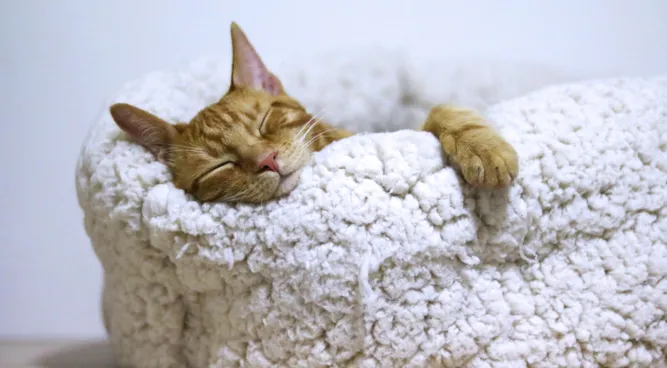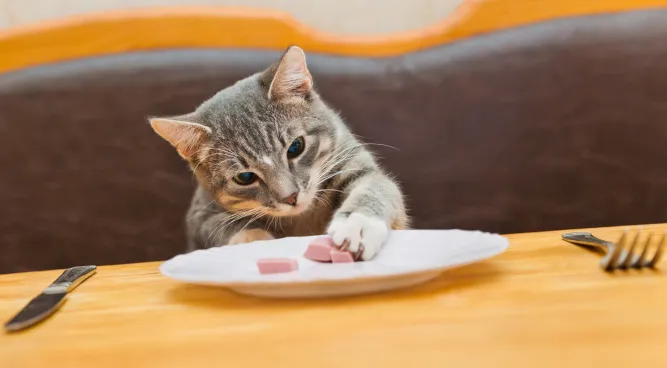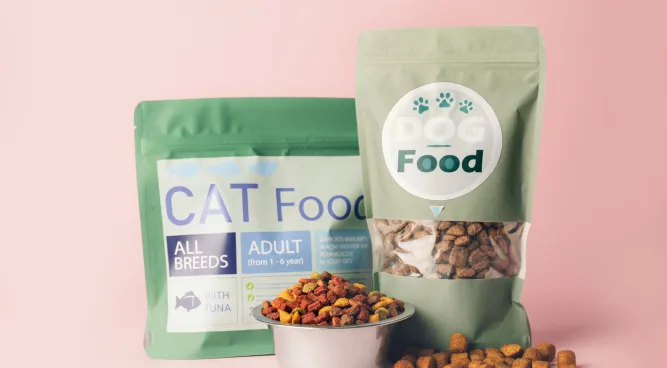Can Cats Eat Refried Beans? A Comprehensive Guide
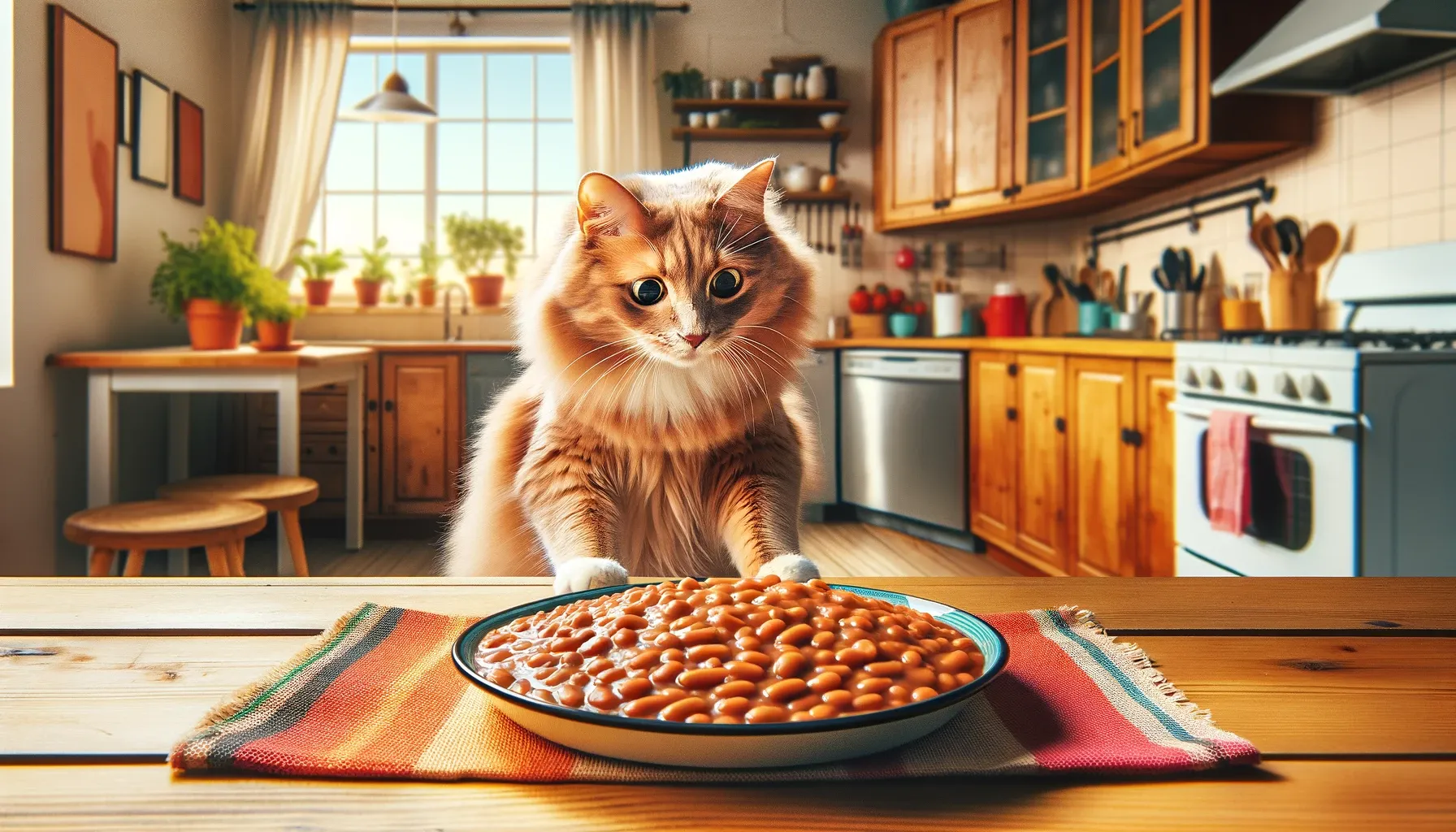
Table of Contents
Discover the feline-friendly facts: Can cats eat refried beans? Uncover expert insights on the safety, nutritional considerations, and potential risks associated with including refried beans in your cat’s diet.
Curiosity about what our feline companions can or cannot consume is a common concern among cat owners. One particular query that often arises is, “Can cats eat refried beans?” In this comprehensive guide, we’ll delve into the intricacies of feline nutrition, exploring whether refried beans are a safe addition to your cat’s diet.
Can Cats Eat Refried Beans?
Cats should not eat refried beans. Refried beans are often seasoned with garlic and onion, which are toxic to cats. Even small amounts of these ingredients can cause anemia in cats. Additionally, refried beans are high in salt, which can be harmful to cats’ kidneys. If you want to give your cat a treat, stick to something safe and nutritious, such as a small piece of cooked chicken or fish.
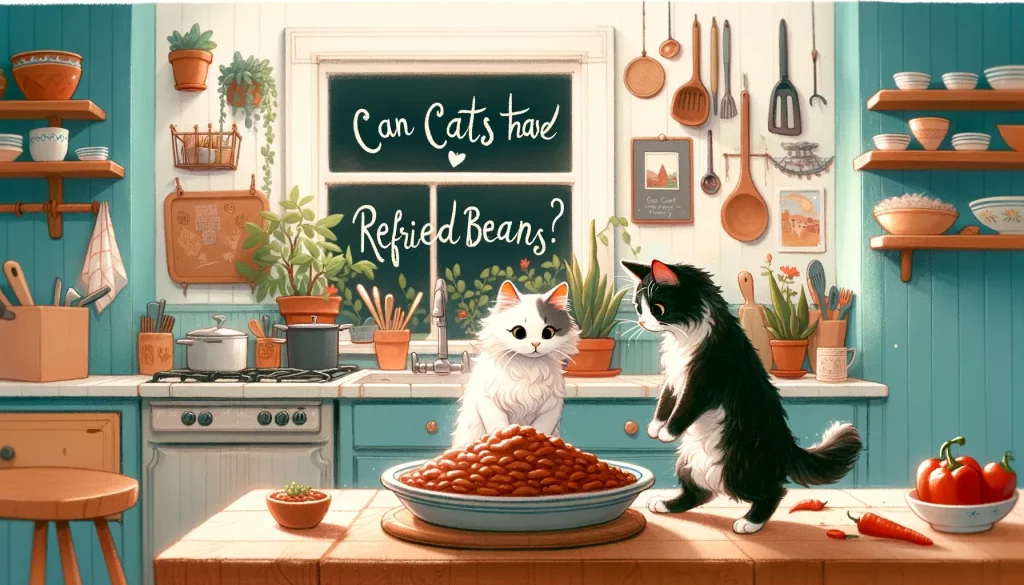
Understanding Feline Dietary Needs
The Carnivorous Nature of Cats
Cats are obligate carnivores, meaning their diet primarily consists of meat. Their digestive systems are adapted to efficiently process and extract nutrients from animal-based proteins. Consequently, introducing non-meat items requires careful consideration.
Nutritional Requirements
Before delving into the specifics of refried beans, it’s essential to recognize the nutritional needs of cats. A balanced feline diet includes protein, fat, vitamins, and minerals sourced from meat. Straying from this natural balance may lead to nutritional deficiencies or digestive issues.
Refried Beans and Cats
Ingredients Analysis
Refried beans typically contain ingredients like pinto or black beans, oil, and seasonings. While beans provide plant-based protein and fiber, cats may not derive optimal nutritional benefits from these sources due to their unique digestive systems.
an amazing post to read about my cat killed a mouse but didn’t eat it
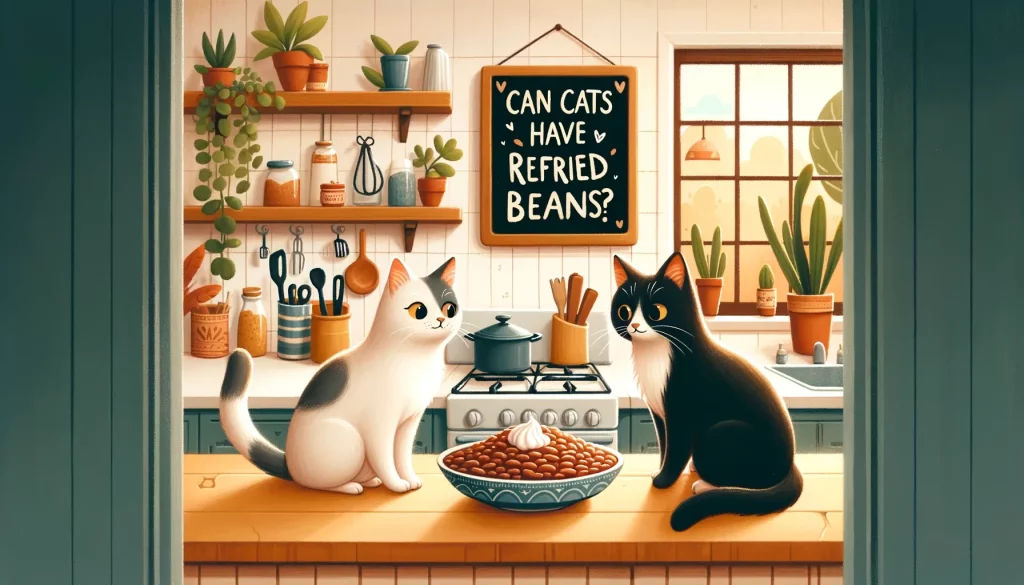
Potential Risks
- High Fiber Content: Cats may struggle to digest the high fiber content in beans, leading to gastrointestinal discomfort.
- Seasonings: Ingredients like garlic and onions, often present in refried beans, are toxic to cats and can cause serious health issues.
- Gas Formation: Beans can cause gas in cats, leading to discomfort and digestive disturbances.
Signs of Discomfort
Understanding your cat’s cues is crucial. Look out for signs of discomfort, including:
- Vomiting
- Diarrhea
- Lethargy
- Changes in Appetite
If you observe any of these signs, consult your veterinarian promptly.
Alternatives to Refried Beans
Ensuring your cat’s diet aligns with their carnivorous nature is crucial. Opt for feline-friendly treats such as:
- Cooked Meat (Unseasoned)
- Catnip
- Commercial Cat Treats
Consultation with a Veterinarian
When in doubt about whether to incorporate a specific food into your cat’s diet, seeking professional advice is paramount. A veterinarian can provide personalized insights based on your cat’s health, age, and dietary requirements.
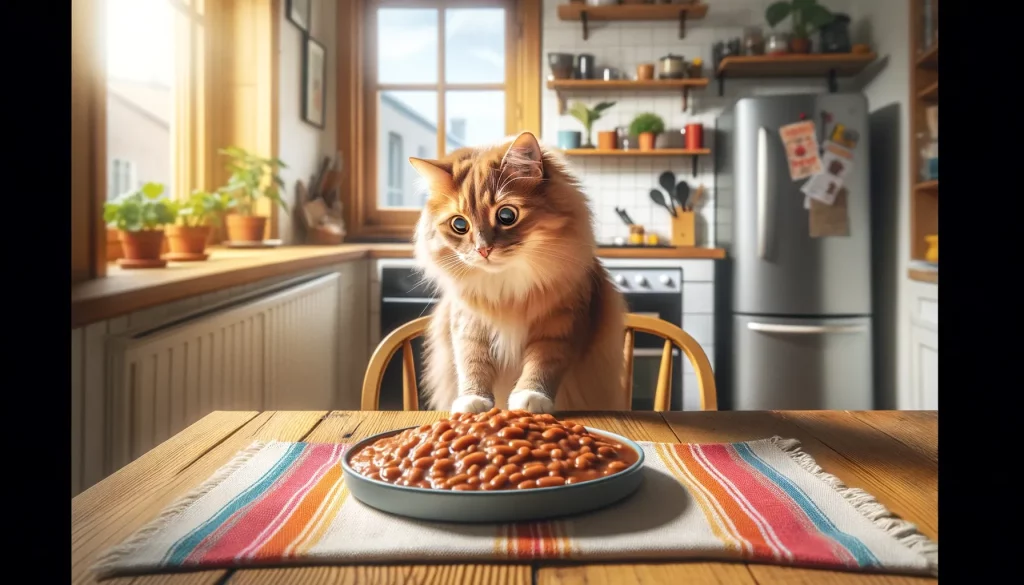
What Exactly Are Refried Beans?
Refried beans are a traditional Mexican dish made primarily from mashed or pureed cooked beans, usually pinto or black beans. Despite the name, they are not fried twice. The time period “refried” is a mistranslation of the Spanish word “refritos,” which truly method “well-fried” rather than “fried again.”
To make refried beans, beans are first boiled until they are smooth. They are then mashed or pureed and cooked with ingredients like lard or oil, onions, garlic, and diverse seasonings such as cumin or chili powder. The cooking method includes sautéing the mashed beans until they attain a creamy and thick consistency.
Refried beans are a flexible dish and are commonly used as a side dish or filling for various Mexican and Tex-Mex dishes, consisting of burritos, tacos, enchiladas, and nachos. They upload a wealthy and savory taste to these dishes, complementing other ingredients like meats, cheese, and veggies. While traditional recipes use lard for added richness, healthier variations may use vegetable oil or omit fats altogether.
Sharing A Taste
While the idea of sharing a taste of refried beans with your feline friend might seem tempting, it’s essential to prioritize their nutritional needs. Cats thrive on a diet centered around animal-based proteins, and deviating from this can lead to adverse effects. Understanding the potential risks associated with refried beans and being attuned to your cat’s responses are crucial elements of responsible pet ownership.
FAQs
Is it safe for cats to eat beans?
While small amounts of plain, cooked beans are generally safe for cats, excessive consumption may lead to digestive issues. It’s best to introduce beans gradually and monitor your cat for any adverse reactions.
Are chickpeas OK for cats?
Yes, chickpeas are safe for cats in moderation. Ensure they are plain, cooked, and free from added seasonings. Introduce them slowly to check for any digestive sensitivities.
Can cats eat broad beans?
Broad beans should be avoided as they contain compounds that may be harmful to cats. Stick to cat-friendly foods to ensure their well-being.
Can I give roti to my cat?
While plain roti in small amounts is generally safe, it’s not an ideal cat food. Ensure it doesn’t contain harmful additives, and prioritize a balanced cat diet.
Can I give Dal to my cat?
Plain, cooked dal can be given in small amounts occasionally. However, it should not replace a cat’s regular diet, and diverse, nutritionally complete cat food is recommended.


